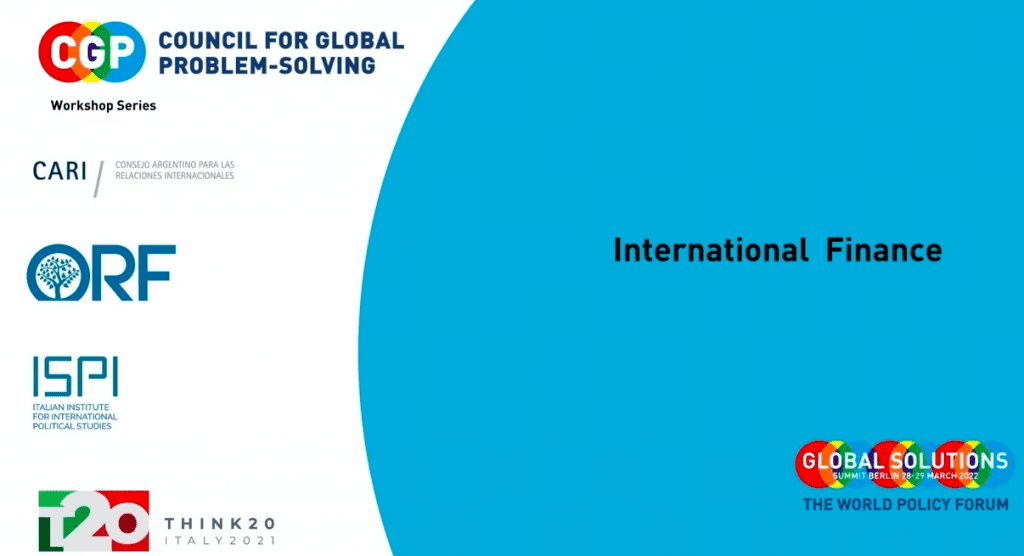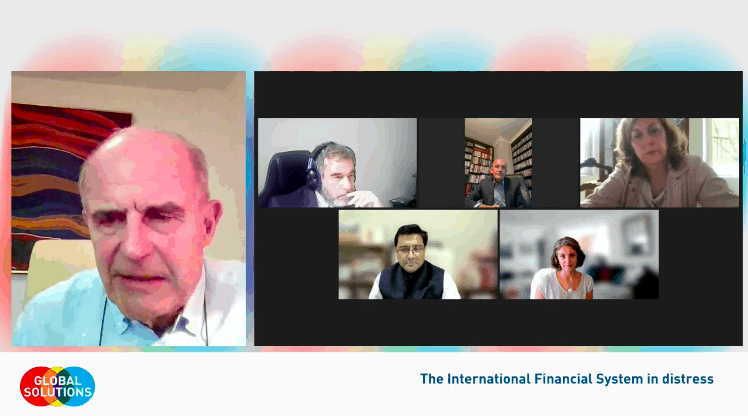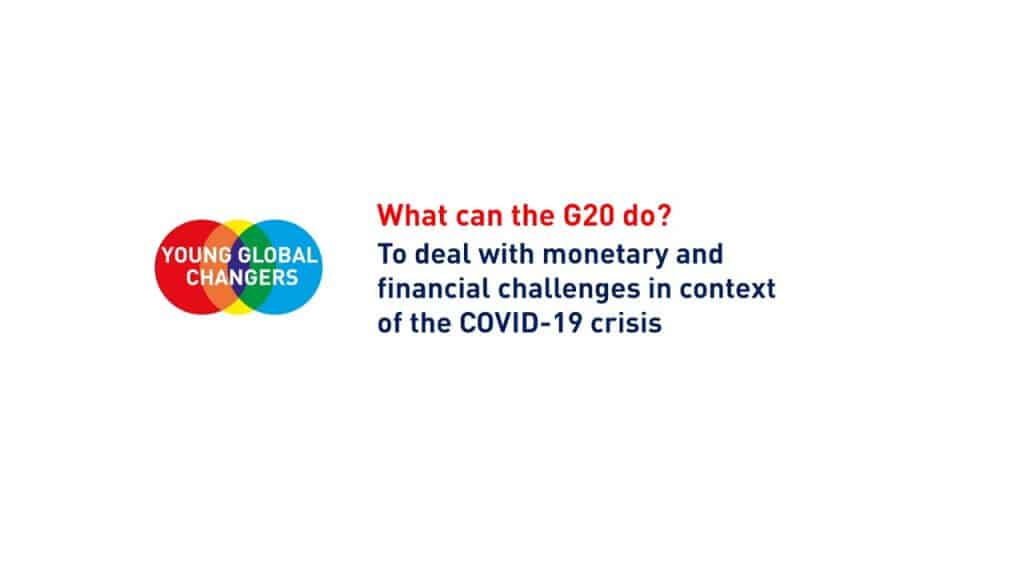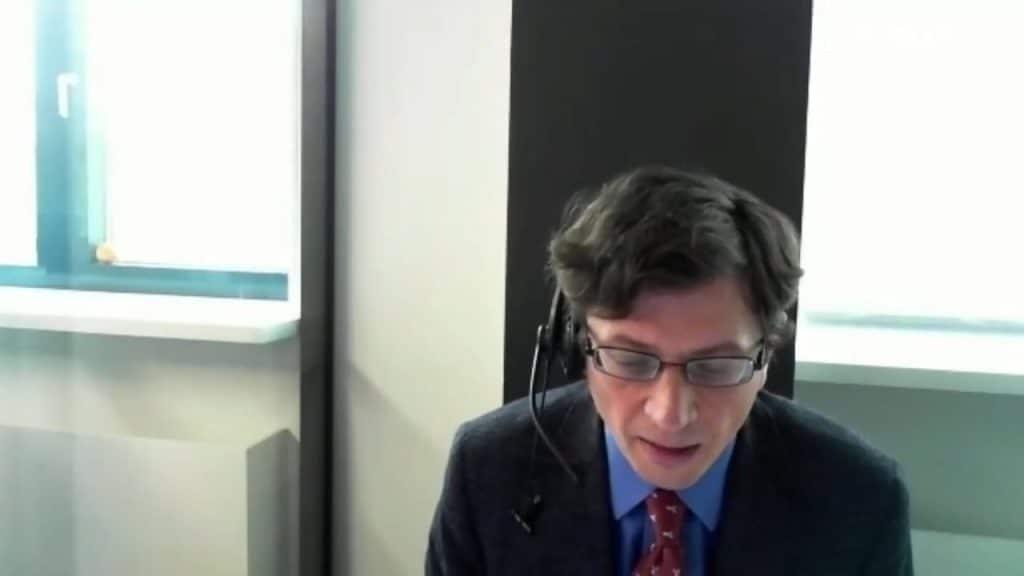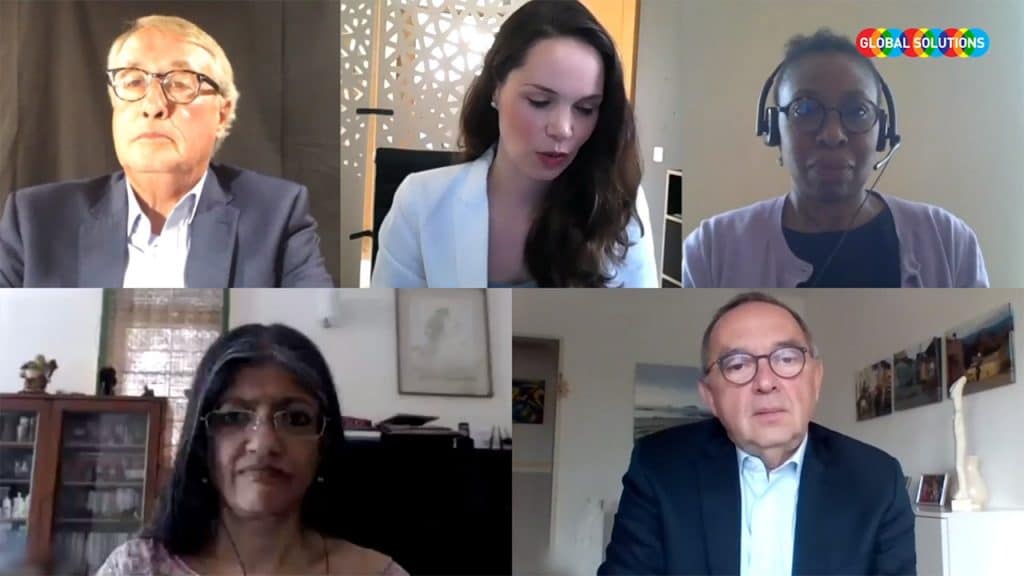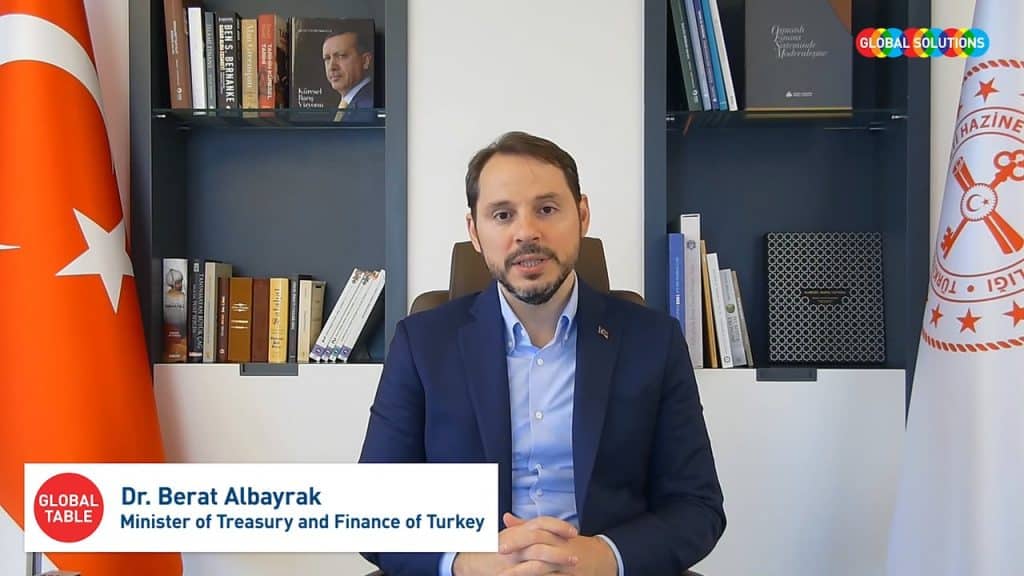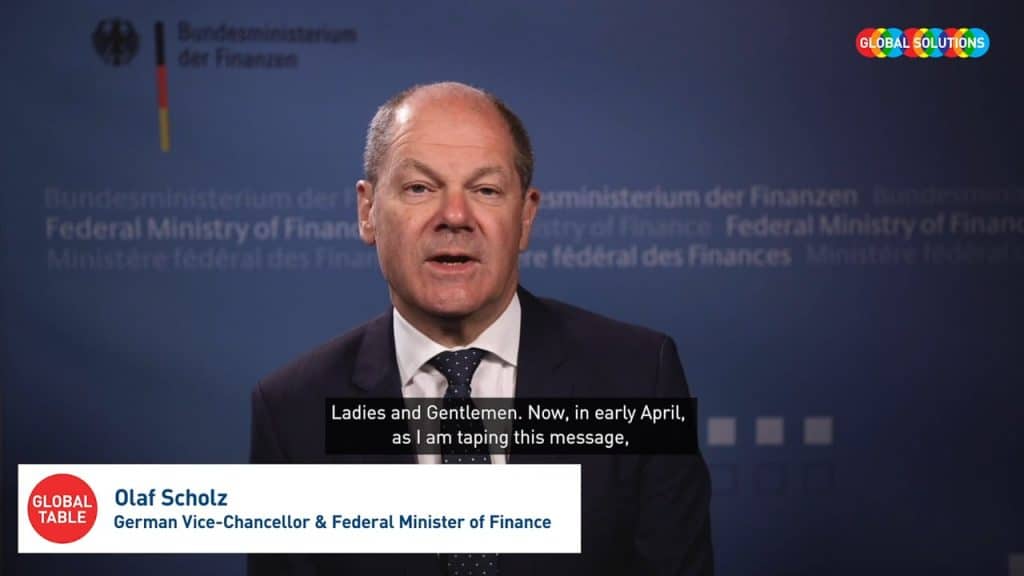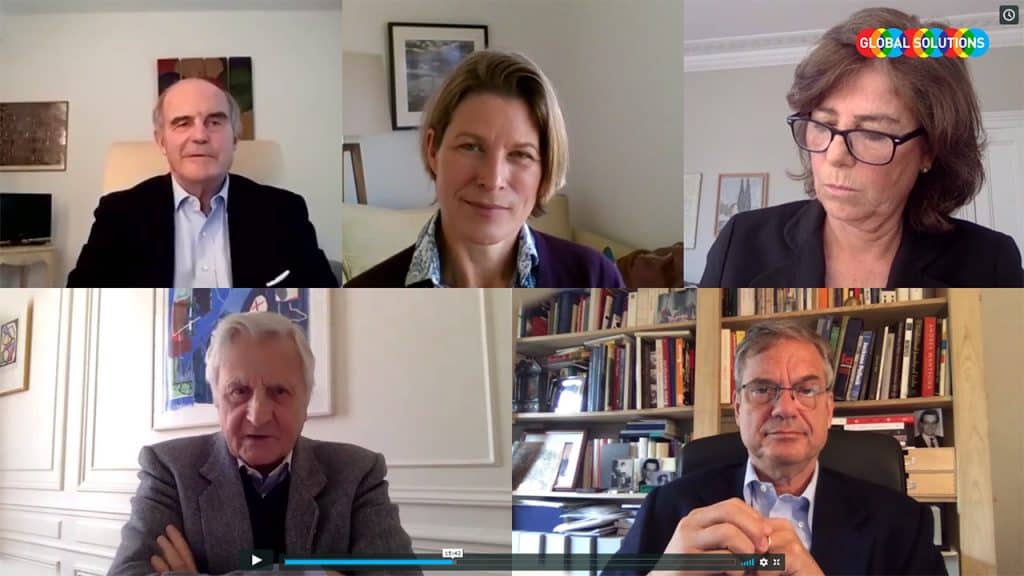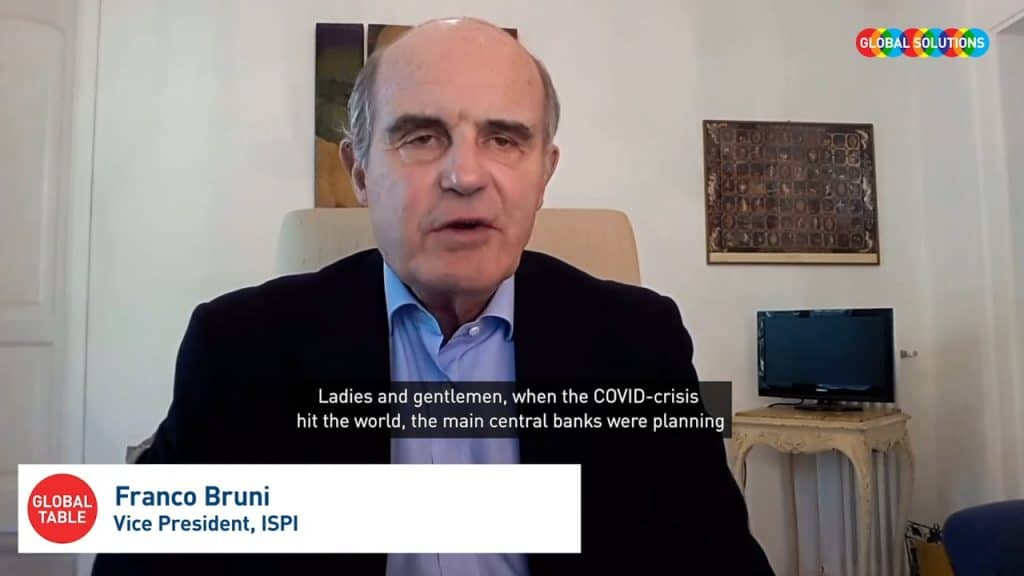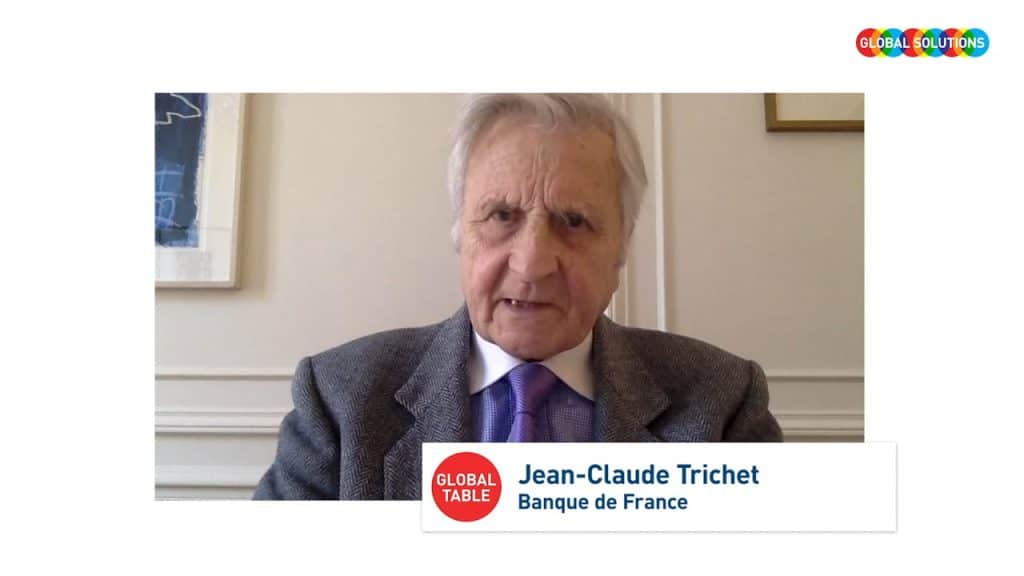Do you have ideas for a Global Solutions Hub or would you like to submit your own Solution Session? Please contact us (contact@global-solutions-initiative.org).
As the world is facing an economic downturn aggravated by the coronavirus pandemic, the creation of multilateral mechanisms of mitigating the consequences of such crises is once again on the agenda. G20 is the appropriate platform to discuss such mechanisms, in particular, dealing with the fiscal stimuli. Limiting the coordinated fiscal response solely to the country level significantly restricts the scale of resources that may be devoted to fiscal stimulus at the global level. There is an urgent need for a mechanism that allows for a coordinated response across all layers of the Global Financial Safety Net and the use of an entire array of reserves and resources to deliver the stimulus. These layers should include that of regional integration arrangements and regional development institutions, whose resources have become a significant part of the Global Financial Safety Net.
This coordinated stimulus exercise should improve upon the previous effort, undertaken in 2008-2009, through focusing more on the composition of fiscal spending with greater priority accorded to human capital development, most notably healthcare. Apart from targeting short-term exigencies, the stimulus should also address longer term vulnerabilities, including the undersupply of healthcare services on a global scale. Another important aspect of the economic stimulus is the possibility of amplifying the effects of fiscal spending at the national level with added momentum coming from the regional development banks and other regional institutions that need to work closely with global organizations such as the World Bank, WTO and the World Health Organization.
Visit this Global Solution HubSolution Sessions
Experts
The discussion about ending the exceptional monetary and financial measures and policy strategies adopted after the 2008 Financial Crisis to return to a “new normal” in monetary policy, gained momentum in 2019 both among policy makers and in the academic research circles. Leading central banks started strategic reviews that should have reached conclusions before the end of 2020. These developments reflected advances in theory, empirical evidence and policy experience as well as new concerns about financial stability, income and wealth distribution, and growing global financial interdependence. However, the Covid-19 pandemic has created a new situation. Its economic consequences will persist for a substantial period and will require new special short-term measures by central banks, well-coordinated with fiscal authorities, to stabilize economies and safeguard financial stability; together with a medium-term strategy for phasing out these crisis measures. This panel will discuss monetary and financial strategies for dealing with the economic shocks triggered by the COVID-19 crisis, and what the G20 and do to support these at a time when multilateralism is in crisis and reaching consensus on the coordination of monetary and financial strategy is difficult. How can central banks and financial authorities maintain financial stability while providing the liquidity required for moderating economic shocks? What lessons can (or cannot) be learned in this regard from the global financial crisis in 2008? How can monetary and financial response measures be designed in a way that prepares for an exit strategy in 2-3 years to return onto the path towards a “new normal” in monetary policy? How can the G20 support this while including central banks and fiscal authorities from other countries?
Visit this Global Solution HubSolution Sessions
Experts
Just and resilient societies depend on an adequate public funding base to provide important public goods, such as health care and education. The COVID-19 pandemic crisis has put a stark spotlight on this: Strong public health systems are an important pre-requisite for successfully dealing with the medical consequences of the pandemic, and fiscal stimulus packages will play an important role in stabilising economies.
However, in recent years there has been an erosion of the public funding base in many countries, as the globalisation and digitalisation of value creation was accompanied by profit shifting and tax avoidance. What can the G20 do to support tax systems for just and resilient societies? Will the OECD led initiative on Base Erosion and Profit Shifting come to a successful conclusion in 2020, as envisaged by G20 leaders? How can progressive wealth taxes contribute to more equitable societies?
Visit this Global Solution Hub

